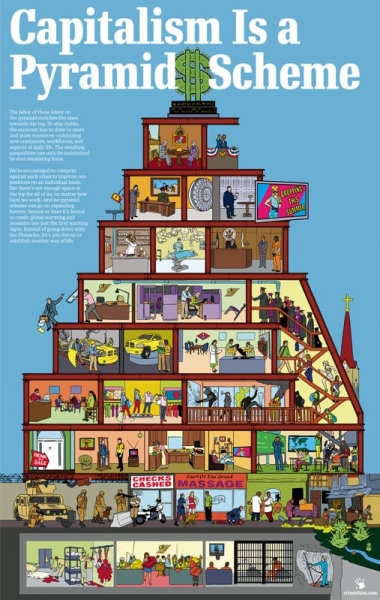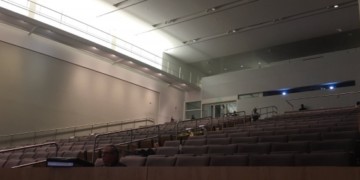Quinn AlbrightBlockedUnblockFollowFollowingDec 2
Across the United States, the UK, France, and many others, millions of people starting to demand a society beyond capitalism. There is a growing consensus among the working people of the world that liberal capitalism has failed, and that we must build something better in it’s place.
Taking for granted that liberal capitalism is a failed system — which is quite a thing to take for granted, but something we must for the sake of this conversation — the question becomes, what are we going to replace it with?
The most immediate answer is social democracy. This is typically the model people suggest when they say they want an economy like that of Denmark or Sweden. Social democracy is characterized by a robust welfare state, strong unions, progressive taxation, and a strongly interventionist government, while maintaining the basic structures of capitalism. This system, while a profound improvement over the free market capitalism of the United States and much of Europe, has some inherent issues for those seeking to create a better world. Firstly, it fails to address the undemocratic structures of the workplace, and usually maintains private ownership of utilities and rented housing, probably the most overtly parasitic elements of the capitalist economy. While unions, rent control, housing subsidies, regulation and the like give workers some recourse and power, the basic structures remain in place and as such, the working class remain at the will of owning class. Additionally, retaining an owning class typically leads to the rollback of concessions. In Sweden, Norway, and Denmark, there has been a continual degradation of union power and the social safety net, as the owning class and the wealthy still exert an disproportionate amount of control over the state because of their role in the economy.
At the polar opposite end, there is the historical answer; state planning. State planning, on the surface, appears to resolve the issues that plague social democracy. With production, housing, natural resources, utilities, and transportation nationalized, the old class structures of capitalism are torn down and the working class is empowered! Or at least, that’s the idea. But history paints a very different picture. State planned economies have historically retained many of the worst elements of capitalism, raising the red banner of socialism but failing to seriously address the needs and interests of the working class. The state bureaucrats take the place of the owners, but the undemocratic structures remain. Though it would be unfair to omit the fact that workers have made some great gains in many states that have implemented planning, it remains an insufficient answer for creating a system that gives the working class the reigns over the economy and over their own lives.
So what is the solution? I think it would be rather silly to act like I have the answer. But there does seem to be a consensus building on the left about what a post-capitalist society may look like. Beyond social democracy, and towards a world without billionaires. The new democratic socialists strive for a society wherein worker owned cooperatives replace stockholder owned companies, where housing cooperatives and municipally owned housing replace the landlords of today, and where communities take ownership over the privately owned monopolies that control our water, electricity, internet, gas and the like, giving everyone a say over how they are operated, the services they provide, and the prices they charge. The path to this is through direct action organizing, electoral work, and issue advocacy. It’s not going to be easy, or quick — but as this vision of a radically democratic society takes hold over the left and the labor movement, unions, activists and voters will start demanding greater say and greater ownership, rather than just higher pay, shorter hours, and a more robust safety net.
Workers will take the reigns over private industry. The future for the post-capitalist left is not in planning, and it is not (beyond a certain point) in social welfare, but in worker ownership and control over all aspects of the economy. We see this society in its embryonic state in the European social democracies. In Italy, when a company goes bankrupt the workers are offered the option of taking complete ownership of the firm, turning it into a worker owned cooperative. In certain parts of the country, cooperatives compose up to 40% of the economy. In Sweden, Norway, and Iceland, communities are starting to take ownership over their landlocked monopolies. Publicly owned internet, electric, and water utilities are the norm across the nordic social democratic states, offering cheaper and more reliable water and electric, as well as faster and cheaper internet than anywhere else in the world besides South Korea — who also hold their internet utilities as common property.
Social democracy and planning both have their merits, and the best elements of both must be understood and implemented insofar as they can be into the model that the broader democratic left is today building. But both are insufficient and incomplete, and for the working class to truly win and retain control, a society based around democracy in both the economy and in government must be our goal, as these goals are almost immediately understood by working people to be of benefit to them. And if we wish to seriously address climate change, income inequality, and many of the other problems of our time, we must build the infrastructure to replace the systems that caused these problems to begin with. And the first step towards that is democratizing everything.
In Solidarity,
Quinn Albright
NWO-DSA Co-founder
























Connect with us